In a news conference-like setting this week, six panels of senior multi-agency representatives briefed planned responses to a devastating Ebola outbreak and multiple damaging cyber attacks within Asia-Pacific nations.
This conceptual exercise, featuring 28 international military and civilian security practitioners, was a key element in the Asia-Pacific Center for Security Studies Theater Security Cooperation Course 14-2 held Dec. 7 – 12. Fellows graduated today from a course that promotes inter-agency collaboration in solving local, regional and even global security-related challenges.
TSC is a senior executive course designed for military officers at the general officer level and civilian equivalents in the security sector. Fellows include leaders in policing, emergency response, foreign relations, economic development and civil government.
“The program is designed to enhance Fellows’ analytical skills while building or expanding their network of contacts,” said APCSS course manager Dr. Mohan Malik, adding, “In essence, we build regional capability through development of critical thinking, communication and collaboration, all leveraged in combating real-world transnational threats.”
APCSS faculty accomplished this through an education program that included twelve lecture titles; among them were: “Strategic Assessment & Planning,” “Shifting Geo-Politics,” and “Regional Security Architecture.” Lectures prepared attendees to more fully grasp the depth, diversity and regional nature of evolving security issues.
Fellows applied knowledge and skills in a three-phase exercise. Teams split into six panels and each first assessed a major viral outbreak or cyber attacks against key infrastructure; they analyzed impacts on critical entities, such as economic, public health and governance sectors. In the planning phase, teams formed and documented response measures and potential solutions, which they articulated in the final recommendations stage. In each phase, teams briefed their findings to the entire class.
“This application exercise was an exceptional means to solidify what Fellows learn and experience here. It clearly demonstrated the effectiveness of a multilateral, multi-sectoral approach to problem solving; an approach that capitalizes on a diversity of ideas and capabilities,” said Mohan.
This diverse group of Fellows came from 26 countries including: Australia, Bangladesh, Cambodia, Canada, China, Federated States of Micronesia, Fiji, India, Indonesia, Japan, Malaysia, Maldives, Marshall Islands, Mongolia, Myanmar, Nepal, New Zealand, Pakistan, Palau, Papua-New Guinea, Republic of Korea, Republic of the Philippines, Thailand, Timor-Leste, the United States and Vietnam.
Among the 28 Fellows was Faustina Kumairii Rehuher-Marugg, chairperson of the Palau Resource Institute. She said she particularly appreciated the course’s focus on ICT – information, communication and technology. Because Palau is relatively remote, Rehuher-Marugg related that gaining connectivity with the world in terms of partnerships and communication is important to strengthening her nation’s security environment.
TSC is one of six formal courses at APCSS. The center is a Department of Defense institute that addresses regional and global security issues. Military and civilian representatives, most from the United States and Asia-Pacific nations, participate in a comprehensive program of executive education, professional exchanges and outreach events, both in Hawaii and throughout the Asia-Pacific region.
The Center supports U.S. Pacific Command by developing and sustaining relationships among security practitioners and national security establishments throughout the region. APCSS’ mission is to build capacities and communities of interest by educating, connecting and empowering security practitioners to advance Asia-Pacific security. It is one of the Department of Defense’s five regional security studies centers.
Since opening in 1995, more than 9,100 alumni representing over 122 countries and territories have attended APCSS courses and workshops.
-END-



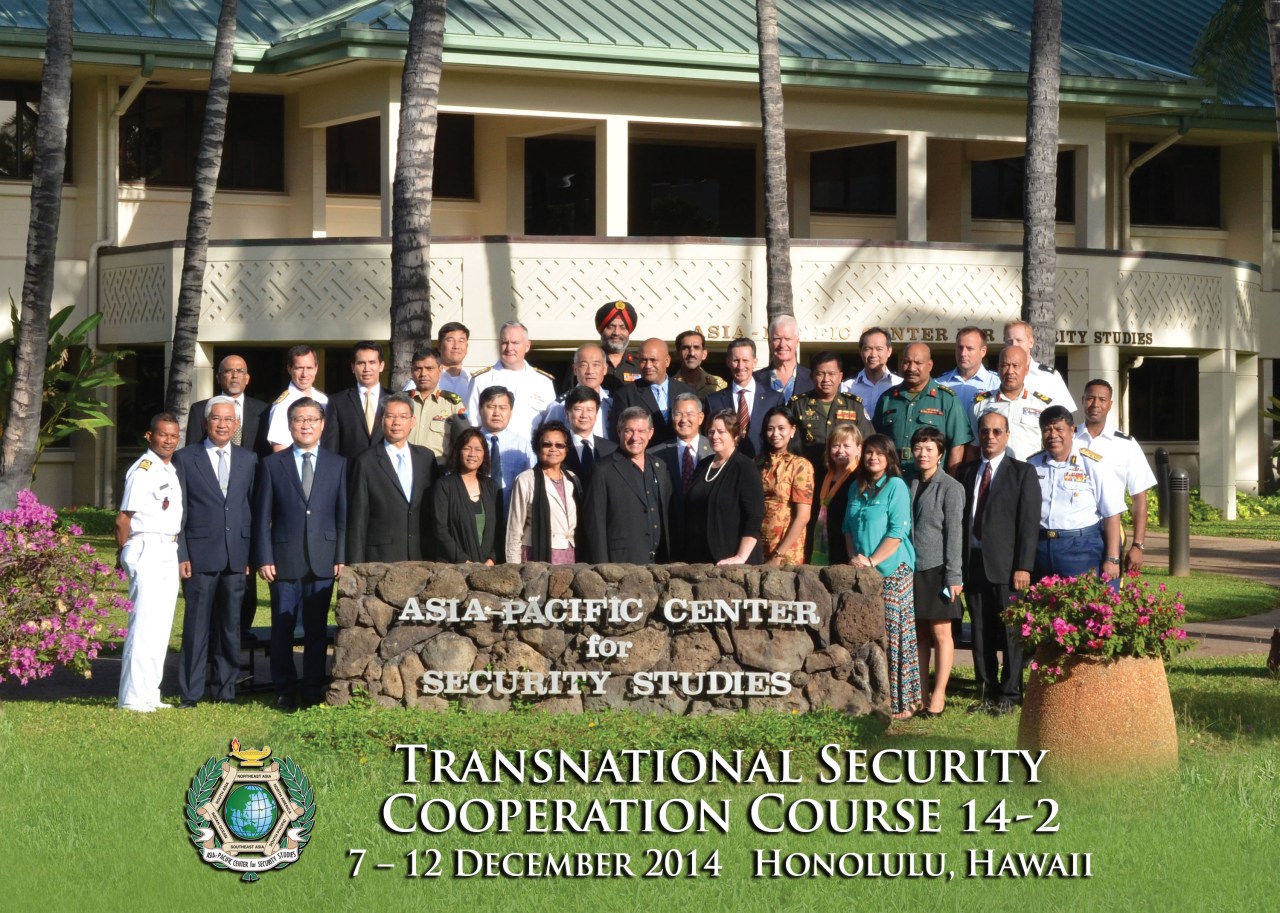
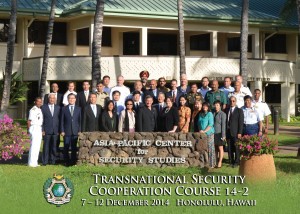
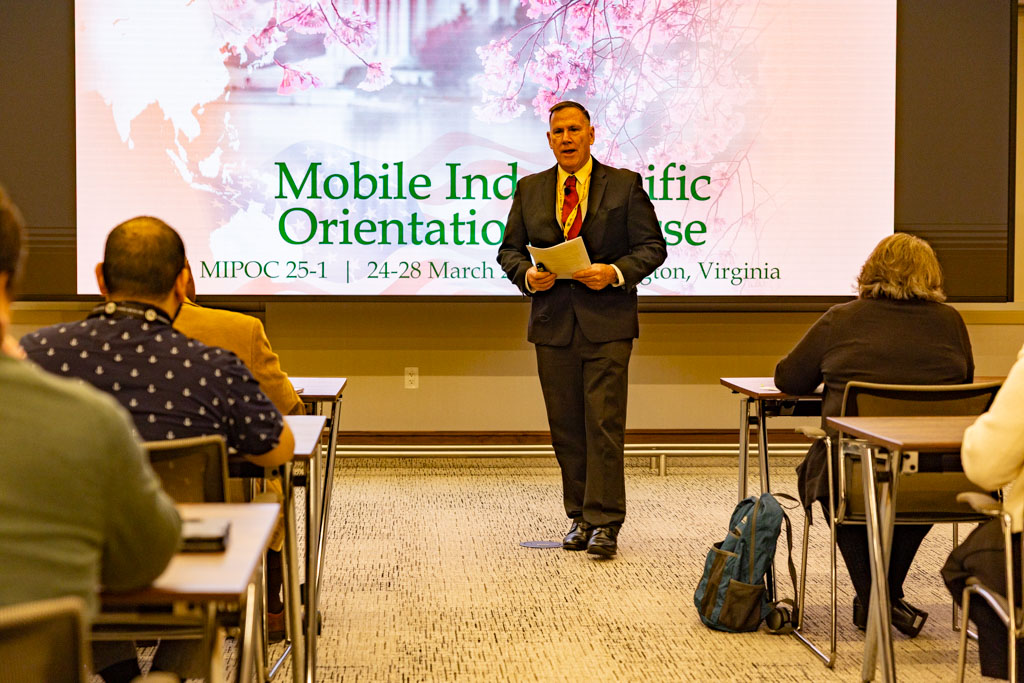
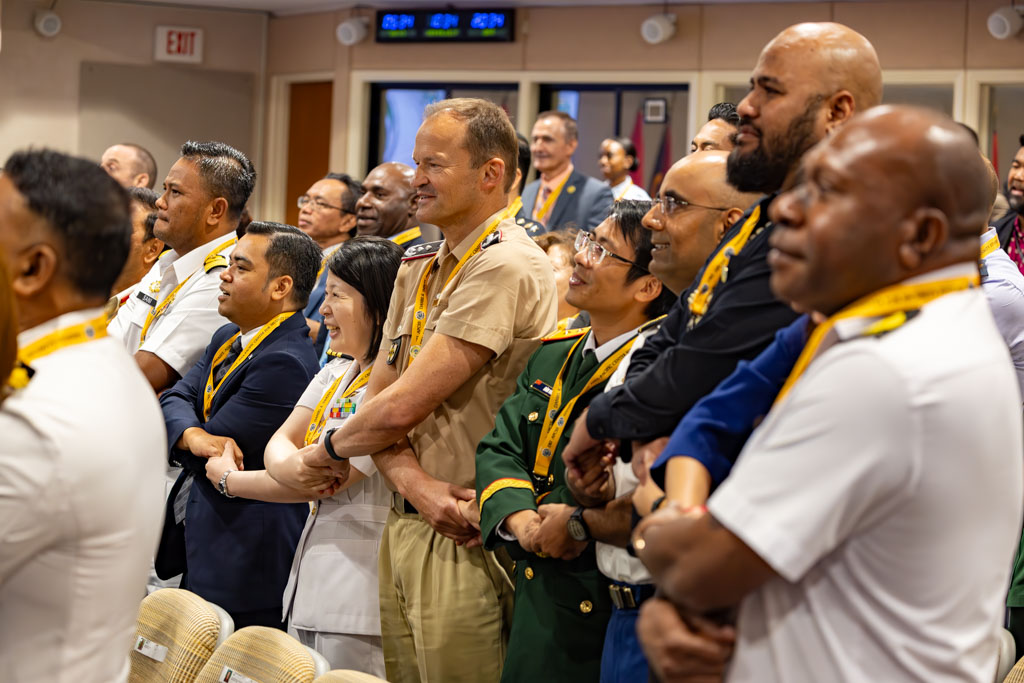
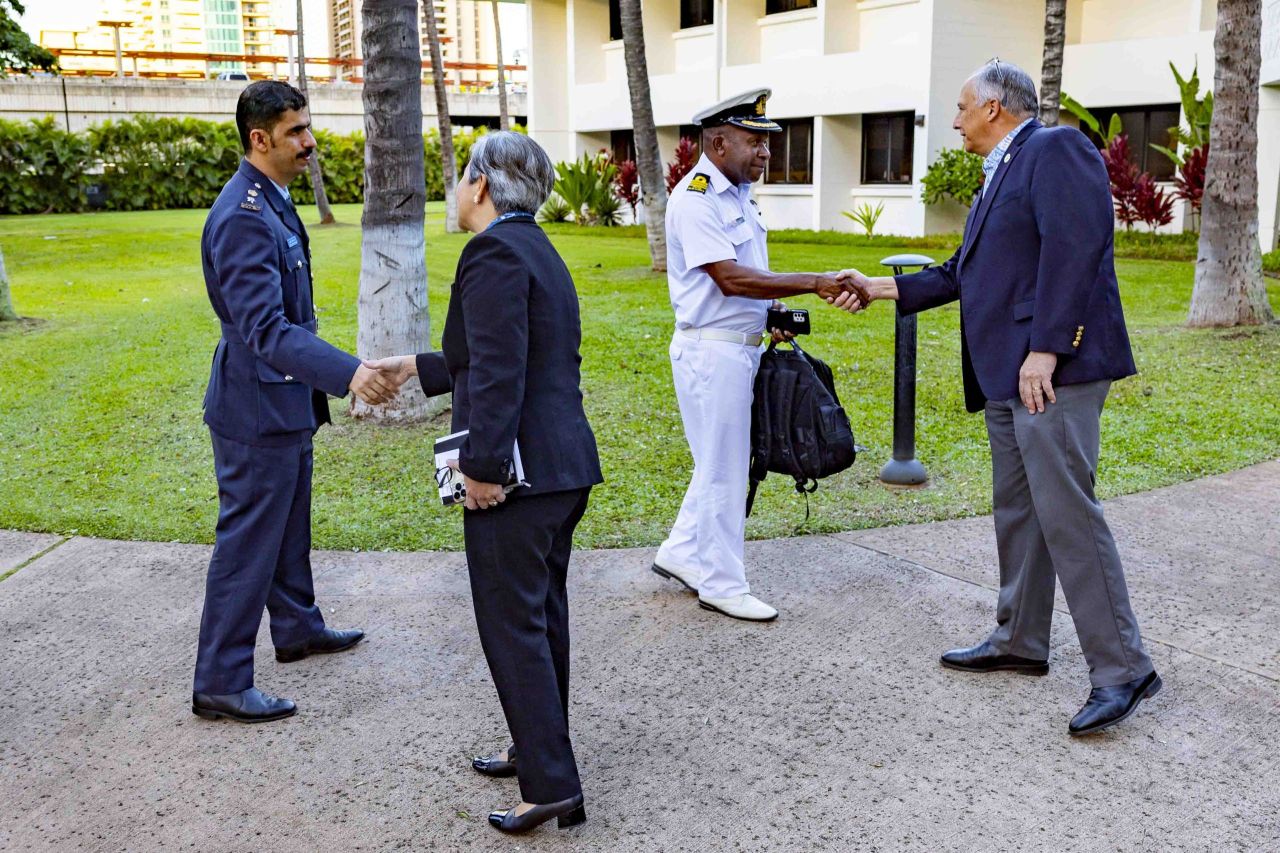


Leave A Comment